Biden: Forge bilateral relations
The U.S. "does not expect Serbia to recognize Kosovo," nor will this affect bilateral relations, says U.S. Vice-President Joseph Biden.
Wednesday, 20.05.2009.
09:18

The U.S. "does not expect Serbia to recognize Kosovo," nor will this affect bilateral relations, says U.S. Vice-President Joseph Biden. After meeting with Serbian President Boris Tadic at the Palace of Serbia, Biden said that he had come to Belgrade on behalf of U.S. President Barack Obama's administration to convey the message that "the U.S. wants to improve cooperation with Serbia, with the region, and to help Serbia become a stability factor in the region.” Biden: Forge bilateral relations The U.S. vice president pointed out that Belgrade and Washington must find common ground and resolve their differences, primarily the ones concerning Kosovo. "The United States does not, I emphasize, does not expect Serbia to recognize the independence of Kosovo," Biden said, and added: "We will continue to insist that the Kosovo Serbs receive the greatest possible protection and participate in the decision-making process." Biden pointed out that Washington supported Serbian EU membership and that it would invest all resources to help Serbia realize its European perspective. “The United States support Serbia's future within the EU and advocates further strengthening of relations between the U.S. and Serbia,” Biden emphasized. “Serbia has a central role in the region, which cannot prosper without Serbia playing a constructive leading role,” the U.S. vice president stated. Biden explained that he had had a very open and honest talk with the Serbian president on renewing relations between the two countries and on the crucial role that Serbia had in the region. Tadic voiced his belief that Biden's visit opened a new era in relations between the two countries, stressing the need for dialogue despite their opposing views on Kosovo. "Vice-President Biden and I agreed that we now have an opportunity to establish a new level of communication between our two countries,“ Tadic told a press conference after meeting with the U.S. vice-president. “I’m sure that with dialogue based on mutual respect, we can achieve a great deal,” the president said. The two men held face-to-face talks for the first hour, after which talks continued with the Serbian delegation. Speaking to reporters, Tadic said that despite their clashing views on the issue of Kosovo, Serbia “wanted the best possible partnership relations with America.“ “There are many subjects that unite us, that we view the same way, and that we can cooperate on. Those are primarily the Western Balkans’ EU integration, and the struggle against international crime and terrorism,“ he said. The president also recalled that the two countries had been allies during the Second World War, adding that they were now “allies in the Partnership for Peace program.“ He said that the talks with Biden had been very “open and productive”, expressing his belief that they would herald the opening “of a new stage in the forming of U.S. policy towards Serbia and the Western Balkans,” which would “take into account the interests of Serbia as a central factor for stability in the region more than before.” Tadic reiterated Serbia’s position that Kosovo’s unilateral independence declaration was a breach of international law, stressing that “Serbia does not recognize Kosovo, nor will it ever do so.“ The Serbian president pointed out that the prerequisite for historical reconciliation between the peoples in the Balkans was their respect for the victims of all countries involved in the clashes that had marked the previous decade. "Serbia is strongly committed to the stability of the entire region and the integrity of all the UN member states. As a signatory of the Dayton Peace Accords, Serbia is a guarantor of the territorial integrity of Bosnia-Herzegovina, and it opts only for solutions that are the result of democratic agreement reached between the three constituent ethnic groups—Serbs, Bosniaks and Croats," Tadic said, who also used his meeting with Biden as an opportunity to invite U.S. President Barack Obama to visit Serbia. Biden arrived in Belgrade this morning in Air Force 2, which was met in Serbian airspace by a squadron of Serbian Army MIG fighters. He was greeted off the plane at Nikola Tesla Airport by Prime Minister Mirko Cvetkovic and Interior Minister Ivica Dacic. From the airport, the vice-president was driven to the Palace of Serbia, to be received by Tadic. Diplomatic sources are saying that as he was greeted by Serbia's Foreign Minister Vuk Jeremic, Biden said that he was "glad to see him again", and, "remarked with a smile that 'he's the one causing all that trouble". "All Harvard boys are like that, I know the kind, I have a few in Washington," the same sources quoted Biden as saying, to which Jeremic reportedly answered that "only the fact that he went to Harvard was true". Security was at a maximum at the Palace, where a large contingent of domestic and foreign news agencies congregated in anticipation of Biden’s arrival. Members of the Serbian police (MUP) Gendarmerie and the Special Anti-Terrorist Unit (SAJ), together with U.S. special police, entered the building just before 09:00 CET, while a police sniffer dog combed the journalist’s quarters this morning, attracting considerable interest among photo journalists. Around 135 accredited domestic and foreign journalists and correspondents were inside the Palace to report on the reception and meeting between Biden and Tadic. The reporters include teams from the AP, Reuters and New York Times agencies, which have been accompanying the U.S. vice-president for the duration of his visit to the region. Biden is heading a five-member delegation, which includes U.S. Assistant Secretary of State Phil Gordon and representatives from the State Department, the National Security Council and the Defense Ministry. During his visit, Biden will lay a wreath at the memorial plaque to the late Zoran Djindjic at government HQ and will attend a dinner held in his honor by the president’s cabinet. In a change to the earlier plan, the vice-president will not be visiting parliament, nor will he be holding separate meetings with the finance or economy ministers. Belgrade is in a quasi-state of emergency for the duration of his visit. The Interior Ministry has announced that owing to security considerations, traffic on routes taken by his motorcade will be diverted intermittently. During his visit to Sarajevo yesterday, Biden said that he was coming to the region with a clear message: to reinforce the U.S.’s long-term commitment to Europe. The U.S. vice-president will round off his tour by visiting Pristina tomorrow. Joe Biden, Boris Tadic (Tanjug)
Biden: Forge bilateral relations
The U.S. vice president pointed out that Belgrade and Washington must find common ground and resolve their differences, primarily the ones concerning Kosovo."The United States does not, I emphasize, does not expect Serbia to recognize the independence of Kosovo," Biden said, and added: "We will continue to insist that the Kosovo Serbs receive the greatest possible protection and participate in the decision-making process."
Biden pointed out that Washington supported Serbian EU membership and that it would invest all resources to help Serbia realize its European perspective.
“The United States support Serbia's future within the EU and advocates further strengthening of relations between the U.S. and Serbia,” Biden emphasized.
“Serbia has a central role in the region, which cannot prosper without Serbia playing a constructive leading role,” the U.S. vice president stated.
Biden explained that he had had a very open and honest talk with the Serbian president on renewing relations between the two countries and on the crucial role that Serbia had in the region.
Tadić voiced his belief that Biden's visit opened a new era in relations between the two countries, stressing the need for dialogue despite their opposing views on Kosovo.
"Vice-President Biden and I agreed that we now have an opportunity to establish a new level of communication between our two countries,“ Tadić told a press conference after meeting with the U.S. vice-president.
“I’m sure that with dialogue based on mutual respect, we can achieve a great deal,” the president said.
The two men held face-to-face talks for the first hour, after which talks continued with the Serbian delegation.
Speaking to reporters, Tadić said that despite their clashing views on the issue of Kosovo, Serbia “wanted the best possible partnership relations with America.“
“There are many subjects that unite us, that we view the same way, and that we can cooperate on. Those are primarily the Western Balkans’ EU integration, and the struggle against international crime and terrorism,“ he said.
The president also recalled that the two countries had been allies during the Second World War, adding that they were now “allies in the Partnership for Peace program.“
He said that the talks with Biden had been very “open and productive”, expressing his belief that they would herald the opening “of a new stage in the forming of U.S. policy towards Serbia and the Western Balkans,” which would “take into account the interests of Serbia as a central factor for stability in the region more than before.”
Tadić reiterated Serbia’s position that Kosovo’s unilateral independence declaration was a breach of international law, stressing that “Serbia does not recognize Kosovo, nor will it ever do so.“
The Serbian president pointed out that the prerequisite for historical reconciliation between the peoples in the Balkans was their respect for the victims of all countries involved in the clashes that had marked the previous decade.
"Serbia is strongly committed to the stability of the entire region and the integrity of all the UN member states. As a signatory of the Dayton Peace Accords, Serbia is a guarantor of the territorial integrity of Bosnia-Herzegovina, and it opts only for solutions that are the result of democratic agreement reached between the three constituent ethnic groups—Serbs, Bosniaks and Croats," Tadić said, who also used his meeting with Biden as an opportunity to invite U.S. President Barack Obama to visit Serbia.
Biden arrived in Belgrade this morning in Air Force 2, which was met in Serbian airspace by a squadron of Serbian Army MIG fighters.
He was greeted off the plane at Nikola Tesla Airport by Prime Minister Mirko Cvetković and Interior Minister Ivica Dačić.
From the airport, the vice-president was driven to the Palace of Serbia, to be received by Tadić.
Diplomatic sources are saying that as he was greeted by Serbia's Foreign Minister Vuk Jeremić, Biden said that he was "glad to see him again", and, "remarked with a smile that 'he's the one causing all that trouble".
"All Harvard boys are like that, I know the kind, I have a few in Washington," the same sources quoted Biden as saying, to which Jeremić reportedly answered that "only the fact that he went to Harvard was true".
Security was at a maximum at the Palace, where a large contingent of domestic and foreign news agencies congregated in anticipation of Biden’s arrival.
Members of the Serbian police (MUP) Gendarmerie and the Special Anti-Terrorist Unit (SAJ), together with U.S. special police, entered the building just before 09:00 CET, while a police sniffer dog combed the journalist’s quarters this morning, attracting considerable interest among photo journalists.
Around 135 accredited domestic and foreign journalists and correspondents were inside the Palace to report on the reception and meeting between Biden and Tadić.
The reporters include teams from the AP, Reuters and New York Times agencies, which have been accompanying the U.S. vice-president for the duration of his visit to the region.
Biden is heading a five-member delegation, which includes U.S. Assistant Secretary of State Phil Gordon and representatives from the State Department, the National Security Council and the Defense Ministry.
During his visit, Biden will lay a wreath at the memorial plaque to the late Zoran Đinđić at government HQ and will attend a dinner held in his honor by the president’s cabinet.
In a change to the earlier plan, the vice-president will not be visiting parliament, nor will he be holding separate meetings with the finance or economy ministers.
Belgrade is in a quasi-state of emergency for the duration of his visit. The Interior Ministry has announced that owing to security considerations, traffic on routes taken by his motorcade will be diverted intermittently.
During his visit to Sarajevo yesterday, Biden said that he was coming to the region with a clear message: to reinforce the U.S.’s long-term commitment to Europe.
The U.S. vice-president will round off his tour by visiting Priština tomorrow.










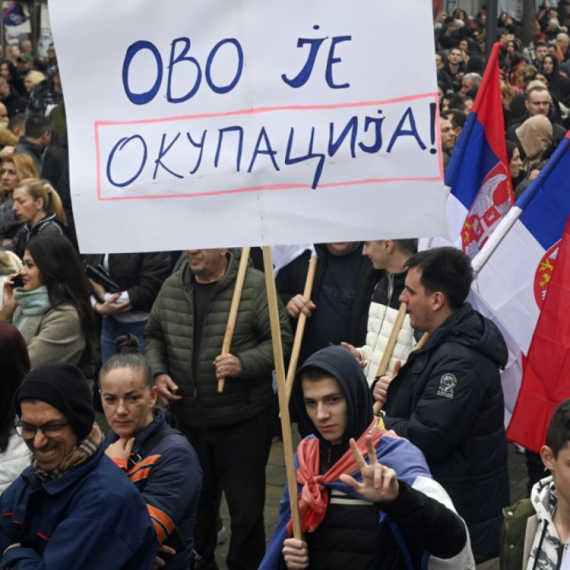
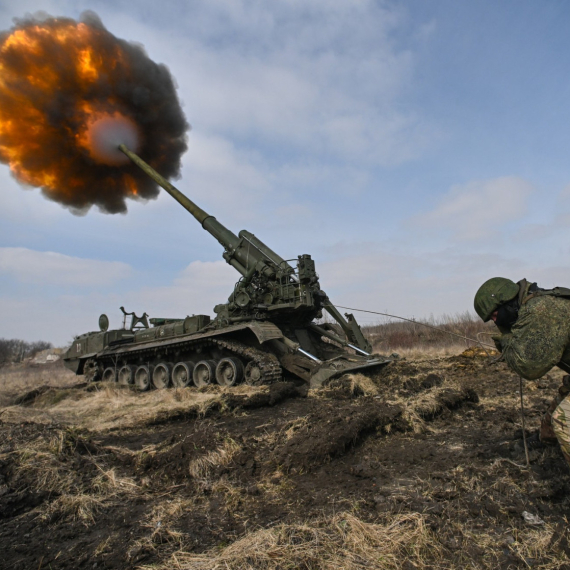
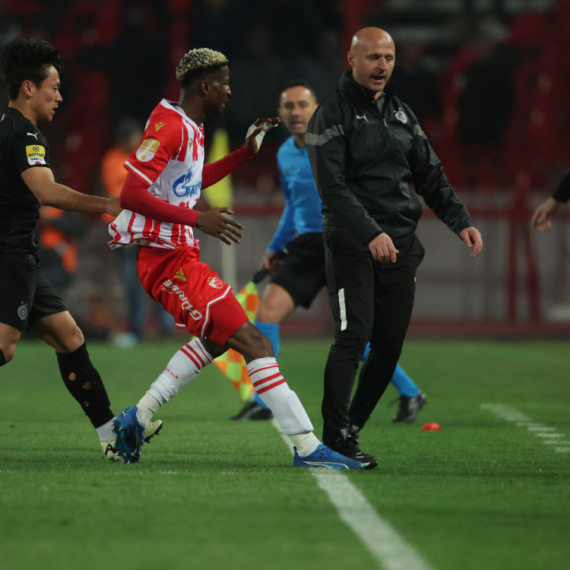


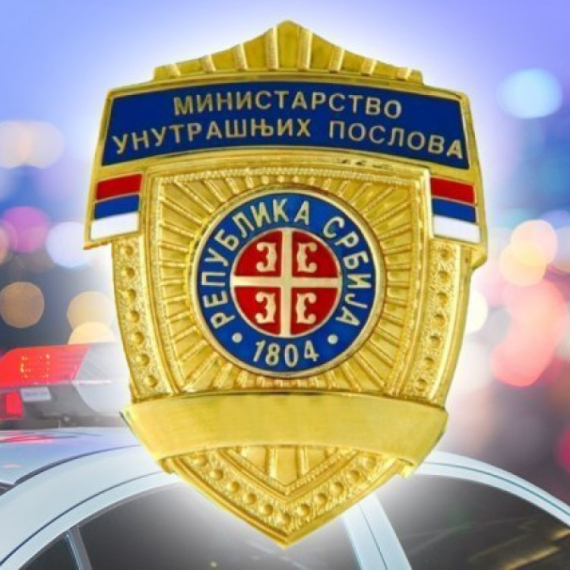
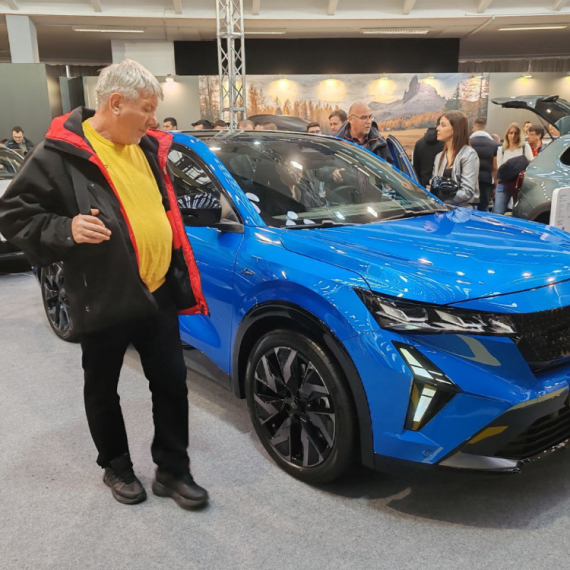



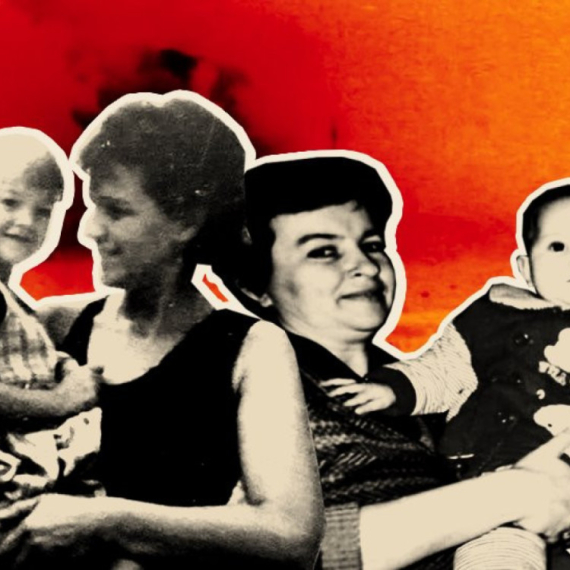
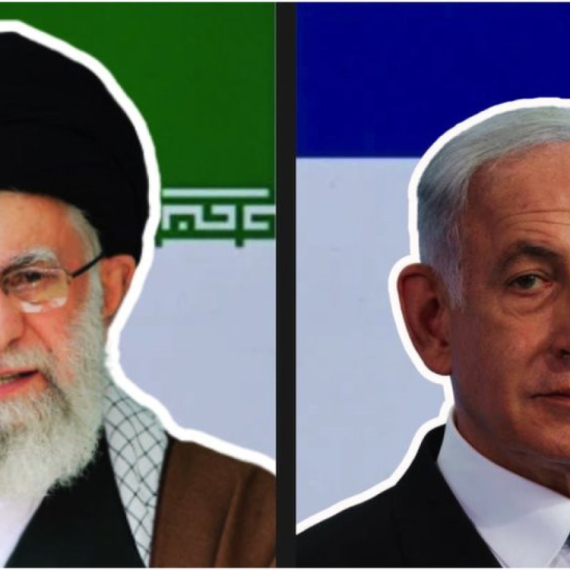
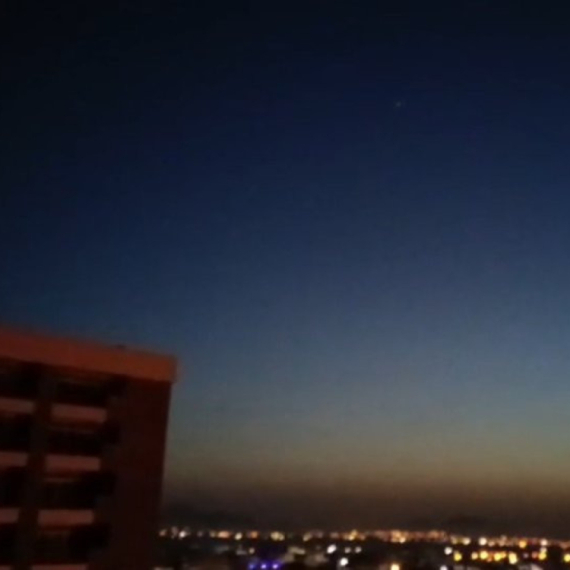



Komentari 51
Pogledaj komentare